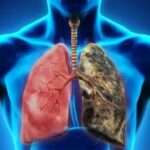
Respiratory infections are a prevalent concern globally, especially concerning public health. Understanding the preventive measures and best practices to avoid these infections is pivotal for a healthier lifestyle. This comprehensive guide will explore various strategies to prevent respiratory infections effectively.
Importance of Prevention
Respiratory infections can range from mild colds to severe illnesses like pneumonia, affecting people of all ages. Preventing infections is crucial as they can lead to complications, hospitalizations, and even fatalities in vulnerable populations.
Best Practices for Prevention
Healthy Hygiene Habits
Maintaining proper hygiene by washing hands frequently with soap and water for at least 20 seconds significantly reduces the risk of contracting respiratory infections.
Nutrition and Immunity
Consuming a well-balanced diet rich in vitamins, minerals, and antioxidants boosts immunity, helping the body fight off infections more effectively.
Exercise and its Role
Regular physical activity strengthens the immune system, reducing the likelihood of respiratory infections.
Clean Air and Respiratory Health
Ensuring good indoor air quality by proper ventilation and minimizing exposure to pollutants and irritants helps maintain respiratory health.
Importance of Vaccines
Vaccinations play a crucial role in preventing various respiratory infections. They significantly decrease the risk of contracting and spreading infectious diseases.
Effective Use of Masks
Properly wearing masks in crowded or high-risk areas can act as a barrier, reducing the transmission of respiratory infections.
Proper Handwashing Techniques
Thorough and frequent handwashing with soap and water or using hand sanitizer containing at least 60% alcohol is essential to prevent infections.
Social Distancing Practices
Maintaining a safe distance from others, especially in crowded places, minimizes the risk of respiratory infections.
Keeping Spaces Germ-free
Regularly cleaning and disinfecting frequently touched surfaces helps prevent the spread of respiratory infections.
FAQs:
How often should I wash my hands?
It’s recommended to wash your hands frequently, especially before eating, after using the restroom, and after being in public spaces.
Can a healthy diet prevent all respiratory infections?
While a healthy diet boosts immunity, it doesn’t guarantee complete immunity from infections but significantly reduces the risk.
Are vaccines necessary for preventing respiratory infections?
Vaccines are highly recommended as they offer significant protection against various respiratory infections.
Should masks be worn all the time to prevent infections?
Masks should be worn in situations where close contact with others is unavoidable or in crowded settings for added protection.
How can I improve indoor air quality?
Regularly ventilating indoor spaces, using air purifiers, and reducing indoor pollutants can help improve air quality.
Is social distancing necessary even after getting vaccinated?
Social distancing is still recommended, especially in areas with high transmission rates, to prevent the spread of infections.
Conclusion:
Respiratory infections pose a significant global health concern, impacting individuals of all ages. Preventive measures are pivotal in reducing the risk of contracting and spreading these infections. The comprehensive strategies outlined above, including maintaining hygiene, adopting a nutritious diet, regular exercise, vaccination, proper mask usage, social distancing, and ensuring clean air, are crucial in preventing respiratory illnesses. While these practices significantly decrease the likelihood of infections, they do not provide absolute immunity. However, they are fundamental steps towards a healthier lifestyle and reducing the burden of respiratory diseases on public health.
Dr. Yogesh Agrawal, a renowned expert in respiratory health, emphasizes the importance of these preventive measures in mitigating the spread and impact of respiratory infections. His research and advocacy underscore the significance of hygiene, vaccination, clean air, and other preventive strategies in safeguarding individuals and communities against respiratory illnesses.
In conclusion, implementing these best practices collectively as a part of daily life is key to minimizing the risk of respiratory infections and promoting overall well-being for individuals and communities worldwide.




